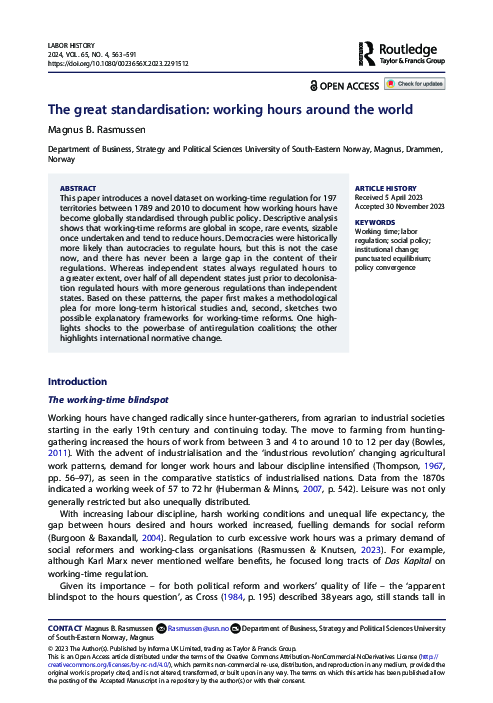The great standardisation: working hours around the world

2024
65
4
563-59
working time ; social policy ; labour standard ; history
Working time and leave
https://doi.org/10.1080/0023656X.2023.2291512
English
Bibliogr.
"This paper introduces a novel dataset on working-time regulation for 197 territories between 1789 and 2010 to document how working hours have become globally standardised through public policy. Descriptive analysis shows that working-time reforms are global in scope, rare events, sizable once undertaken and tend to reduce hours. Democracies were historically more likely than autocracies to regulate hours, but this is not the case now, and there has never been a large gap in the content of their regulations. Whereas independent states always regulated hours to a greater extent, over half of all dependent states just prior to decolonisation regulated hours with more generous regulations than independent states. Based on these patterns, the paper first makes a methodological plea for more long-term historical studies and, second, sketches two possible explanatory frameworks for working-time reforms. One highlights shocks to the powerbase of antiregulation coalitions; the other highlights international normative change."
This work is licensed under the terms of the Creative Commons Attribution 4.0 International License (http://creativecommons.org/licenses/by/4.0/).
Digital
The ETUI is co-funded by the European Union. Views and opinions expressed are however those of the author(s) only and do not necessarily reflect those of the European Union or the ETUI.